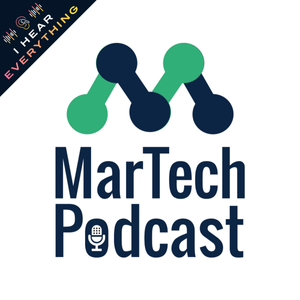
AI in Automotive - #406 - Alex Roy, Founder - Johnson & Roy Advisors, Autonocast, The Drive, Human Driving Association
12/21/23 • 59 min
Till a few weeks back, Cruise was considered one of the big three of autonomous general driving. It was licensed to run a robotaxi service in San Francisco, and my LinkedIn feed was full of folks gushing over the magical experience of being driven around in a car without a driver.
Then the proverbial shit hit the fan. One of Cruise’s robotaxis got caught in a classic edge case, with a road user who was hit by another vehicle, falling in its path. So far so bad, but then things got worse.
In the last few weeks, heads have rolled. Cruise has seen the departure of its CEO and other key execs. The company, owned by GM, has decided to get rid of a quarter of its staff, and finds itself in a proper existential crisis.
How did things come to this, and could they have been avoided?
To find out, I invited Alex Roy to the AI in Automotive Podcast. Alex is one of the most recognised voices, and an absolute authority in this space. He wears many hats, amongst which is hosting the very popular Autonocast podcast. Previously, Alex worked as an exec at Argo, and was key to their thoughtful approach to operationalising self-driving cars on public roads.
While my conversation with Alex started talking about Cruise, the theme is not about Cruise alone. Because there is a long tail of edge cases, and things are going to go wrong as this very nascent technology is brought to market. This is also a very new space, and as one might expect, regulation needs to find the right balance between encouraging innovation and guaranteeing safety. The technical scale of the problem can not be underestimated, and it rarely is. But it is the human side of the problem that often does not get the attention it deserves. My chat with Alex underlined for me that getting the human and cultural piece right is going to be as critical to the success of autonomous driving as solving the technical problem.
With this, we season 4 of the AI in Automotive Podcast is a wrap. I am certain you enjoyed listening to my chat with Alex on season four’s final episode. Please do share the episode with your friends or colleagues, or drop a note on your socials - I always appreciate your support.
#ai #automotive #mobility #technology #podcast #selfdriving #autonomousdriving #safety #leadership #cruise
Till a few weeks back, Cruise was considered one of the big three of autonomous general driving. It was licensed to run a robotaxi service in San Francisco, and my LinkedIn feed was full of folks gushing over the magical experience of being driven around in a car without a driver.
Then the proverbial shit hit the fan. One of Cruise’s robotaxis got caught in a classic edge case, with a road user who was hit by another vehicle, falling in its path. So far so bad, but then things got worse.
In the last few weeks, heads have rolled. Cruise has seen the departure of its CEO and other key execs. The company, owned by GM, has decided to get rid of a quarter of its staff, and finds itself in a proper existential crisis.
How did things come to this, and could they have been avoided?
To find out, I invited Alex Roy to the AI in Automotive Podcast. Alex is one of the most recognised voices, and an absolute authority in this space. He wears many hats, amongst which is hosting the very popular Autonocast podcast. Previously, Alex worked as an exec at Argo, and was key to their thoughtful approach to operationalising self-driving cars on public roads.
While my conversation with Alex started talking about Cruise, the theme is not about Cruise alone. Because there is a long tail of edge cases, and things are going to go wrong as this very nascent technology is brought to market. This is also a very new space, and as one might expect, regulation needs to find the right balance between encouraging innovation and guaranteeing safety. The technical scale of the problem can not be underestimated, and it rarely is. But it is the human side of the problem that often does not get the attention it deserves. My chat with Alex underlined for me that getting the human and cultural piece right is going to be as critical to the success of autonomous driving as solving the technical problem.
With this, we season 4 of the AI in Automotive Podcast is a wrap. I am certain you enjoyed listening to my chat with Alex on season four’s final episode. Please do share the episode with your friends or colleagues, or drop a note on your socials - I always appreciate your support.
#ai #automotive #mobility #technology #podcast #selfdriving #autonomousdriving #safety #leadership #cruise
Previous Episode

AI in Automotive - #405 - Andrew Fleury, CEO Luna Systems and Chris Tingley, CEO EVWare
Since the beginning of time, cities have been incredibly important to civilization. Today, the World Bank estimates that cities contribute 80% of global GDP. Cities are central to our growth and prosperity, but every single major city in the world is facing challenges ranging from poor air quality to creaking infrastructure.
So how do cities evolve to prepare for the future? And what role does AI play in this evolution?
On this unique episode of the AI in Automotive Podcast, I invited the CEOs of two companies that are enabling our cities to become safer, smarter and more sustainable using the power of artificial intelligence.
Andrew Fleury is the CEO of Luna Systems, a company that is making mobility smarter using their computer vision capabilities. They are putting cameras on micromobility scooters, and using AI to help micromobility operators give their riders a safer experience.
Chris Tingley runs EVWare, a company whose hardware and software platform makes vehicles safe, connected and intelligent. They do this by bringing high-tech features and functionality to vehicles of all shapes and sizes, including micromobility scooters.
The modern city generates bucketloads of data. It has been for a while now. Till a few years back, there was limited use for this data. Perhaps the quality of data was suboptimal. Perhaps it was in a form that was not adequately usable to identify patterns and generate insights. Maybe we did not have enough tools and infrastructure to leverage this data.
All that is changing fast. With the rise of AI and the commoditisation of cloud infrastructure, the data that cities generate carries immense potential in improving decision making and crashing decision time by orders of magnitude. Companies like Luna Systems and EVWare are - in their own way - creating a collaborative ecosystem of partners that can make our cities smarter, safer and more sustainable.
I hope you enjoy listening to my chat with Andrew and Chris. If you do, go ahead and rate the AI in Automotive Podcast wherever you get your podcasts.
#ai #automotive #mobility #technology #podcast #machinelearning #urbandesign #cities #infrastructure #vision #micromobility
Next Episode

Back after a break!! Season 05 coming up
If you needed a surprise in the new year, this is it! We are back!! It’s been a longish hiatus. I needed the time to recharge and think about where the industry is headed. We also welcomed a new member to our family, and I have used the time to change over a thousand nappies!!
So, what exactly happened in the last year?
The AI in Automotive Podcast quietly - literally quietly - turned five.
AI went properly mainstream. Like BOOM mainstream! The silicon valley AI CEOs turned into demigods, and everything from your toaster to your kids’ toys turned AI-powered, seemingly overnight.
AI was always an important enabling technology in the automotive industry, and this is what we had been covering on the show for the last five years. But the buzz around AI pushed some OEMs to make AI in the car more visible - enter features like ‘ChatGPT in the car’. There are interesting applications for a conversational interface in the vehicle - we covered this in our chat with Matt Anderson from SoundHound, for instance. But for them to have any value to the driver, software-defined vehicles with a coherent EE architecture is a key pre-requisite. We’ve covered this in numerous conversations in the past. With Sarah Tatsis from BlackBerry for instance, or Hemant Sikaria from Sibros.
If you look beyond what is mainstream, then the biggest theme that is emerging is the rapid convergence of the automotive and energy industries. We are seeing energy utilities turn into EV lease companies, and automotive OEMs turning into energy companies, thanks to the energy in the batteries of their EV parc. This represents significant opportunities for energy companies, automotive OEMs, fleet owners / operators and hundreds of other players in the automotive and energy ecosystems.
Needless to say, AI, as an enabling technology, is a key accelerator of this convergence. This is what we will be covering in future episodes of the AI in Automotive Podcast.
As always, I have an incredible roster of knowledgeable experts sharing valuable insights and unique perspectives. I am sure you will enjoy what is coming up.
If you feel you have benefited from the content on this show in the past, please do share the AI in Automotive Podcast with your friends and colleagues who might find it valuable as well. I promise you there are no more babies on the way, and hence, no more long breaks!!
If you like this episode you’ll love
Episode Comments
Generate a badge
Get a badge for your website that links back to this episode
<a href="https://goodpods.com/podcasts/ai-in-automotive-podcast-57326/ai-in-automotive-406-alex-roy-founder-johnson-and-roy-advisors-autonoc-40107010"> <img src="https://storage.googleapis.com/goodpods-images-bucket/badges/generic-badge-1.svg" alt="listen to ai in automotive - #406 - alex roy, founder - johnson & roy advisors, autonocast, the drive, human driving association on goodpods" style="width: 225px" /> </a>
Copy




